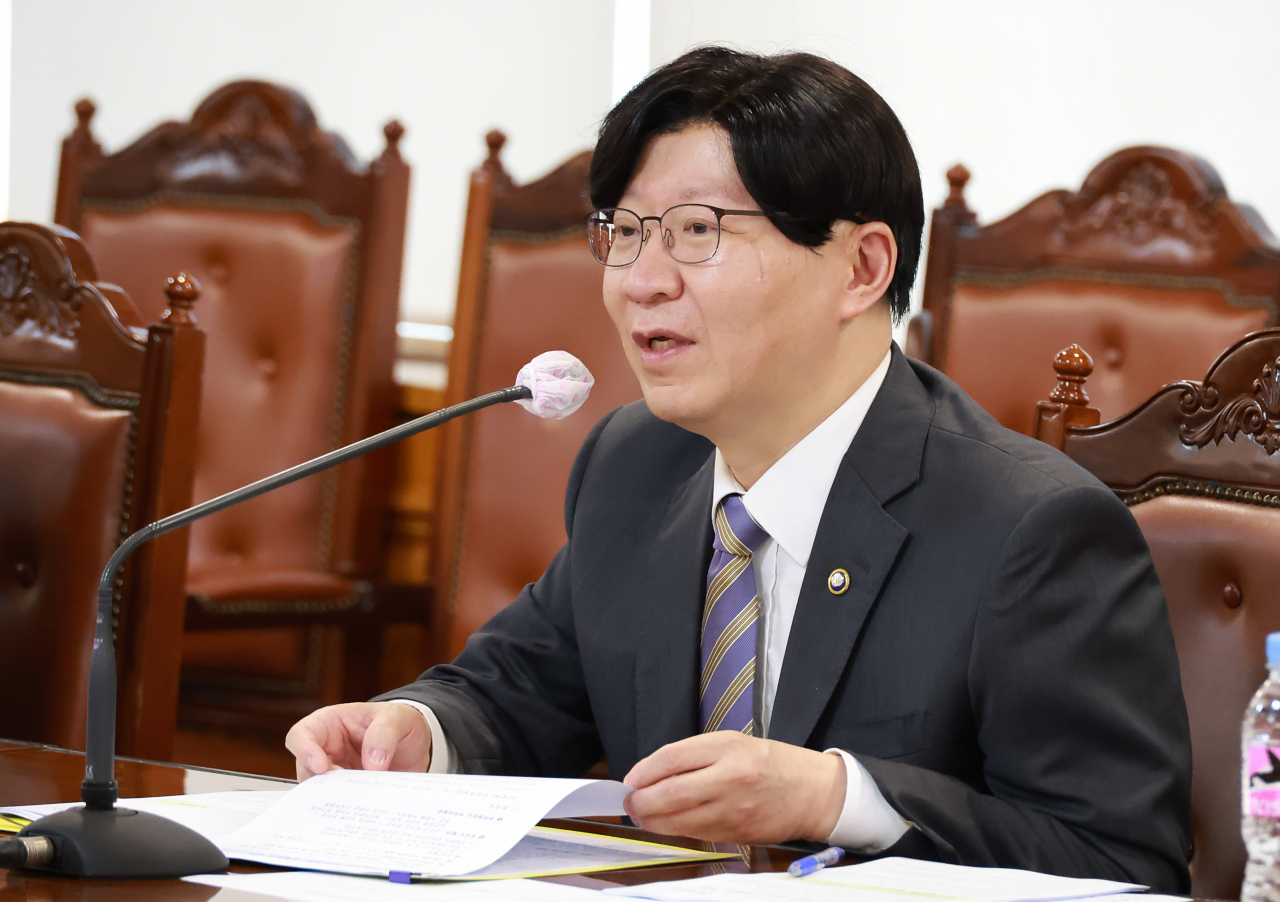China's property woes will have minimal impact on Korea: FSC
Korean financial authorities agree uncertainties remain depending on Chinese government's response
By Song Seung-hyunPublished : Aug. 23, 2023 - 15:57

South Korea’s financial authorities downplayed the possibility that the uncertainties stemming from the Chinese real estate crisis will have a serious and direct impact on domestic financial markets.
“There is no need to feel excessively anxious, as the stable fundamentals of the Korean economy and financial market are being maintained," Kim So-young, vice chairman of the Financial Services Commission, said during an emergency meeting held Tuesday in Seoul, with representatives from the Financial Supervisory Service, the Bank of Korea and the Korea Center for International Finance in attendance.
According to the FSC, the exposure of domestic financial institutions to Chinese real estate development companies is estimated to be around 400 billion won ($298 million).
Even when including indirect exposure such as real estate trusts, the total exposure is less than 1 trillion won, the FSC added.
Tuesday’s meeting was followed Deputy Prime Minister Choo Kyung-ho's recent meeting with reporters, in which he reiterated his outlook for the second half. Choo suggested that the economic growth rate is likely to fall within the range of 1.7 to 2.0 percent, while the economic growth rate for the first half was 0.9 percent.
"The growth rate in the second half is approximately twice as high as that in the first half. We are anticipating a recovery," Choo said.
The FSC’s vice chairman, however, urged the government and related organizations to be vigilant and strengthen the response system further, as the possibility of prolonged China’s real estate crisis may increase in the future.
During the meeting, participants also agreed that the impact on the Korean financial market will vary depending on actions taken by the Chinese government in response to the situation.
Kim added that the FSC will also form a financial risk response team with relevant agencies and financial experts to review financial market issues and risks.
"We will systematically monitor both domestic and international uncertainties and trends in the global economy and finance," Kim said.
The FSC's stance on the Chinese real estate market situation aligns with the perspectives held by some industry insiders.
While the immediate effects of Chinese real estate risks may be limited, some industry sources are concerned that a prolonged downturn in the Chinese property market could introduce uncertainty into the broader Chinese economy, given its substantial contribution to the country's gross domestic product, which came to approximately 25 percent as of 2021.
The industry sources added that a protracted economic slowdown in China triggered by a decline in the property market could potentially impact Korea's real economy and financial markets through multiple channels.
This is why the FSS also has taken proactive measures to prepare for the potential repercussions of the Chinese real estate crisis on the domestic financial sector.
Starting in January, the FSS established a daily monitoring team specifically focused on Chinese real estate risks. This team conducts daily assessments of the exposure of domestic financial institutions and identifies any unusual trends in this regard.
There is also a possibility that this slowdown in the Chinese domestic market will lead to a decrease in Korea’s overall exports.
"The economic slowdown caused by Chinese debt risks is expected to negatively impact not only China, our main export destination, but also the Association of Southeast Asian Nations economies,” Park Sang-hyun, a researcher at Hi Investment& Securities, said. "Without strong economic stimulus measures in the second half, it is difficult to anticipate a recovery in exports to China and the ASEAN region."
The size of South Korea's exports to China has been decreasing, but China still takes up the biggest share, accounting for 19.5 percent of Korea's exports as of the first half.
In addition, there are concerns that diminished consumer sentiment in China may curtail the anticipated economic benefits stemming from the return of Chinese group travel to Korea.
In early August, the Chinese government announced the removal of restrictions on group tours to Korea, marking the end of over six years of economic sanctions.
According to a February report from the Bank of Korea regarding the domestic economic impacts of China's reopening, it was estimated that Korea's economic growth rate could be potentially boosted by 0.08 percentage points for every million Chinese tourists visiting Korea.



















